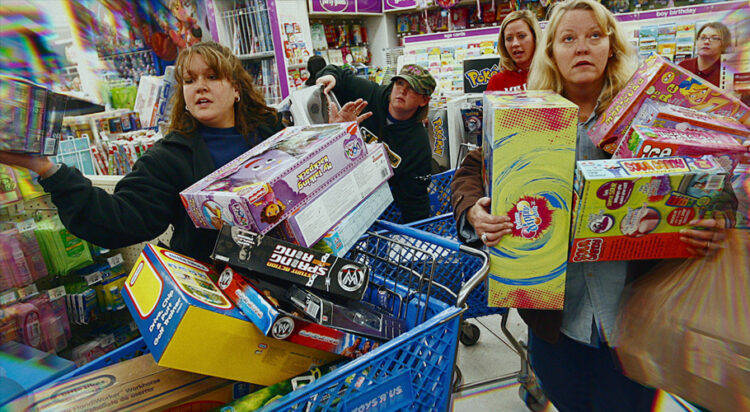This Black Friday, a staggering $10.8 billion was spent, setting a new record for the day of sales. But alongside the excitement of discounts and early holiday spending, a new documentary, Buy Now, is shedding light on the environmental toll of mindless consumption.
Released on Netflix last month, Buy Now explores how consumer culture has become an inescapable part of daily life, driven by major brands making purchasing too easy and accessible. The film emphasizes the unintended consequences of buying more than we need, particularly the environmental damage caused by mass production and the overwhelming waste it generates.
The documentary highlights the impact of overproduction, not just through clothing, but across a wide array of products, including toys and technology. A poignant segment reveals the aftermath of discarded clothes from fast fashion brands washing up on pristine beaches in West Africa, a stark reminder of the global scale of waste. Flora Bagnall, the film’s producer, spoke about the documentary’s intent to expose this environmental crisis in a way that captures the attention of viewers who may not be aware of the long-term effects of their buying habits.
In an interview, Bagnall explained that the documentary’s approach was designed to be visually striking, using the language of advertising to pull in viewers before diving into the deeper, more sobering truths about overconsumption. The film’s graphics and imagery paint a vivid picture of what happens when products we consider disposable accumulate in landfills, oceans, and shorelines around the world.
“We wanted to capture the sheer scale of the issue,” said Bagnall. “It’s not just about clothes; it’s about everything we buy—things that we think are inexpensive, but don’t last long. Quality often gets sacrificed, and then we’re left throwing it away, contributing to an ever-growing environmental crisis.”
The documentary also addresses how consumers can make better choices, urging people to reflect before making impulsive purchases. But it’s not just the individuals the film hopes to reach. Bagnall and her team also aim to hold companies accountable, highlighting the role that large corporations play in perpetuating this cycle. By exposing the power dynamics at play, Buy Now seeks to inspire both consumers and lawmakers to think critically about the products they buy and the impact these choices have on the planet.
With Buy Now, Bagnall hopes to spark a larger conversation about sustainable consumption. “It’s about getting people to think differently—whether you’re a consumer, a corporate leader, or a policymaker,” she said. “We need to change the way we approach consumption to create a more sustainable future.”
As we dive deeper into the holiday shopping season, Buy Now serves as a powerful reminder of the true cost of our seemingly harmless purchasing habits. Whether it’s that trendy pair of shoes or the latest tech gadget, each choice carries weight, and Bagnall’s documentary urges viewers to reconsider their role in the global consumption cycle.



































